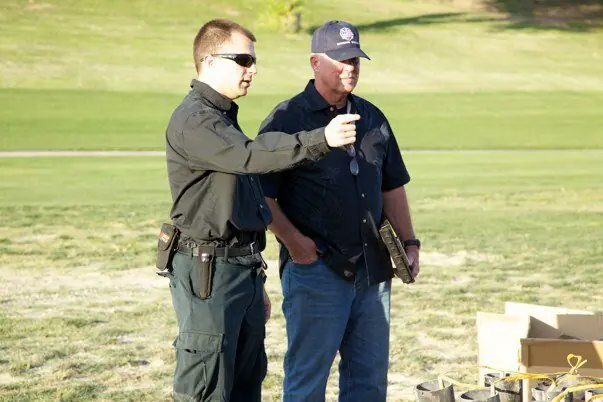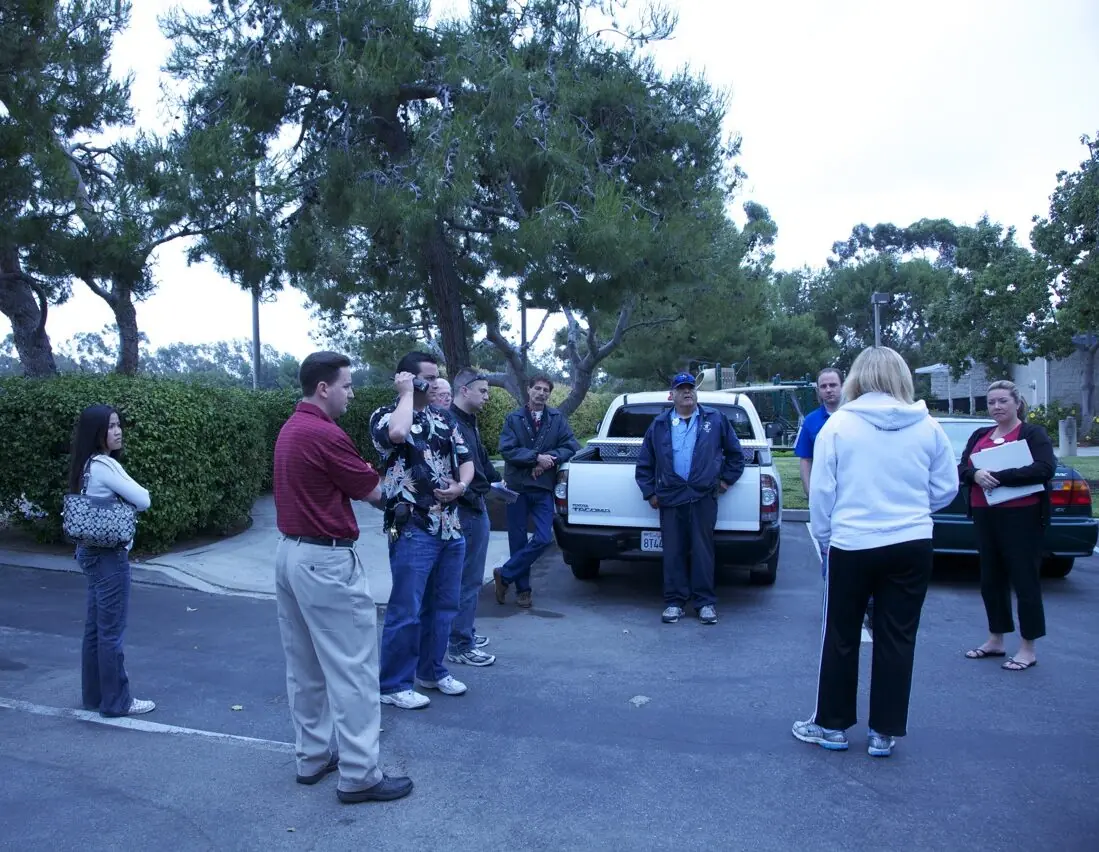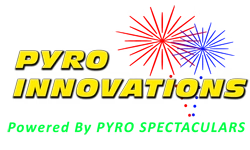Take me back to Licensed Pyrotechnician Training
Pre-Show Site Inspection
Every good pyrotechnic operator will inspect his site before setting up his first show at that location. This means coming out in the weeks preceding the show. Site inspection is very important since it helps you determine any special logistical needs and safety concerns. Here are some of the things you should cover when doing a site inspection:
– Physically measure legal distances from show site to audience plus margin
– Determine the prevailing wind direction and how this will affect your layout
– Any fire hazards
– Any issues with gaining access to the firing site
– Type of material you will be setting up on (i.e. grass, roofing material, etc…)
– Determine if any special tooling or equipment is needed


Pre-Production Meeting
Before every show (especially larger shows) you need to meet with the customer, fire inspectors, audio personnel, property owner, groundskeepers, and anyone else that might be necessary to ensure that your show needs and safety are met. Most customers prefer to have the meeting take place well in advance so that they can make sure to accommodate any needs the fireworks crew has. Professional appearance and demeanor are a must. In most cases, the customer has paid what they would consider a significant amount of money for the fireworks display, and you want to make sure they have confidence in your abilities to safely and successfully deliver their show. Arrive well prepared. Take a list of topics to discuss, and always get there early to do your site inspection before the meeting takes place. This way, you can bring up any safety concerns or logistical matters that arose out of your site inspection during the meeting. Here is a short list of items that should be brought by the operator to a site inspection/meeting:
– Notepad
– Business cards
– Laser Range Finder OR a similar measurement device
– Show paperwork
– Plot plan
Fireworks Show Logistics
This training video goes over a general set of logistics and considerations that the pyrotechnic operator in charge will have to deal with at each show.
What topics should I discuss during our meeting?
Many things should be discussed during your pre-production meeting. Depending on who you are meeting with at the time, these are some basic guidelines on what you should ask/discuss:
Customer Meeting
– Where the crowd will be
– Surrounding fire hazards watered down
– Customers responsibility to provide site security
– Any trouble with security last year
– Where will my crew enter the firing site?
– Sprinklers turned off on the show site
– Any stadium or field lights that need to be off
– Are any other events going on? where, what, when?
– How many people are expected to attend
– Will the customer be at the show
– Exchange contact info for the day of the event
– Typical wind direction/speed
– How will I be cued to fire?
– Sand and front loader (if you have mortar boxes)
– Restrooms for crew
Fire Inspector Meeting
– Any problems with the show last year? Security? Fires?
– Will you have any stand-by engines or hoses?
– Setup, angles, and fire precautions
– Special requirements for that jurisdiction?
– Wind considerations
– Exchange contact info for the day of the event
Audio Technician Meeting
– Where the audio booth will be set up
– Test run
– Communications
– Equipment headsets or time code hardline
– What time will the technician arrive
– Exchange best contact info for day of the event
Boat Captain Meeting (for a barge show)
– Number of deckhands that will be onboard
– What facilities will be available to us on the vessel/barge
– Restrooms
– Shelter (from pyro and weather)
– Duration of trip
– Safety briefing for my crew
– Personnel capacity (i.e., including the operator, how many crew you can take to sea)
– Communications with the captain while underway
– Lights for the deck
– Equipment loading to/from the deck of the barge
– Name of Vessel
– Exchange contact info for the day of the event


